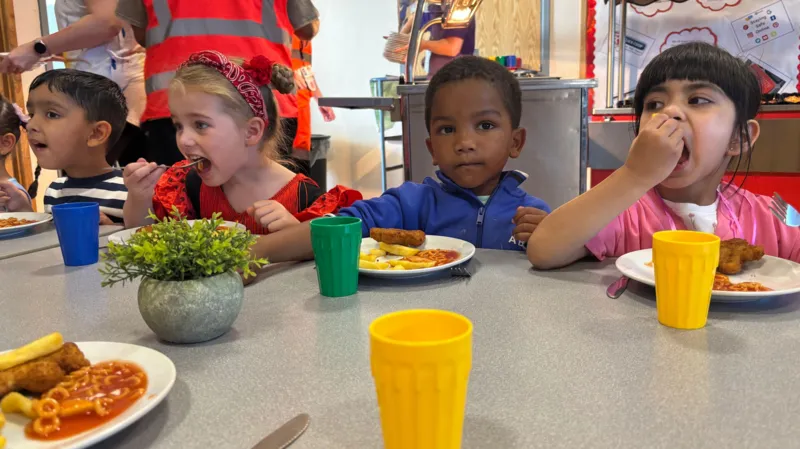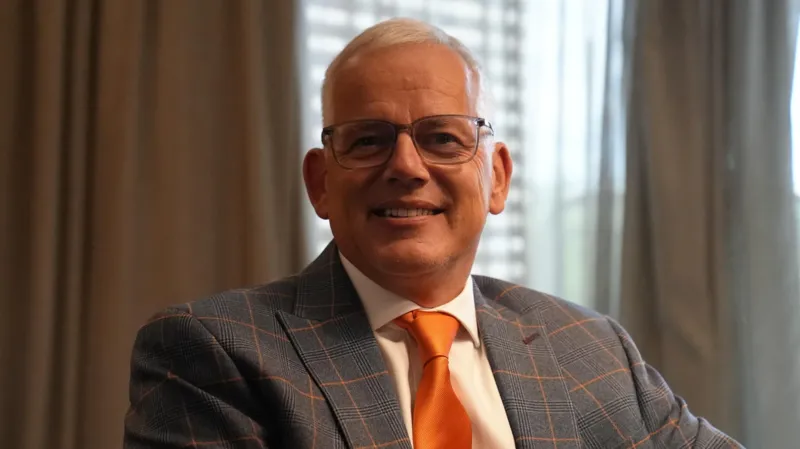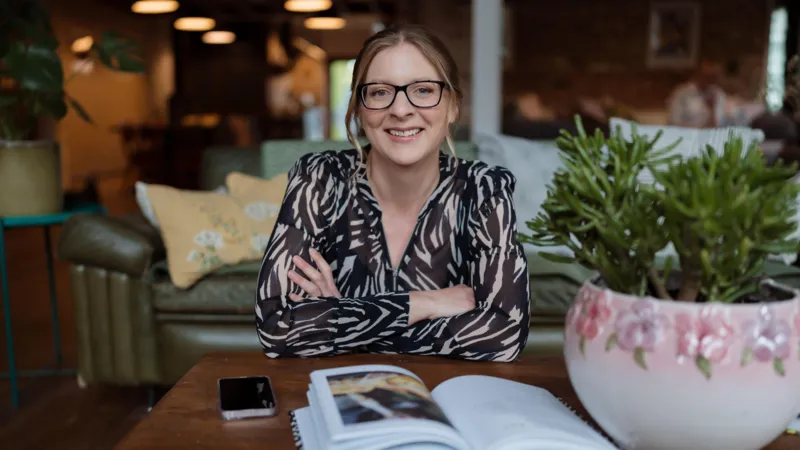School children are getting less meat, cheaper ingredients and smaller portions in their lunches as caterers battle rising costs, the new chair of a school food organisation has said.
Michael Hales, incoming chair of LACA, said schools were increasingly having to bridge the gap between government funding for free school meals and the rising cost of delivering dinner for all of their pupils.
It comes after the government said it would expand free school meals, which Mr Hales said was “welcome”, but added that more funding would be “essential”.
The Department for Education (DfE) said the “fully funded” expansion of free school meals was a “historic step to tackle the stain of child poverty”.
A spokesperson added the government would keep the meal rates paid to schools, which fund free school meals, under review.
In April, the government said those rates would rise by 3p in the next academic year, from £2.58 to £2.61 per meal – a rise which Mr Hales said was “inadequate” and “almost considered an insult”.
He said it meant caterers who were part of LACA and provided about three million school dinners a day, were having to make “really difficult decisions” over portion sizes, and the quality of ingredients they could afford.
He said it was becoming an “ever increasing challenge” to meet the government’s school food standards, which officials said they were looking to “revise” with input from sector experts.
In Stoke-on-Trent, head teacher Clare Morton said she was spending £45,000 per year topping up the money she received from the government to pay for free school meals.
That money could be spent on another member of staff at St Mary’s Primary School, she said, but added it was vitally important all the children were well fed.
“For a lot of our children, this is the only hot meal that they will get during the day,” she said.
“Without healthy food, without a full tummy, these children won’t be able to learn.”
In England, the government will pay primary schools £2.61 per meal in 2025-26 to deliver its universal infant free school meals scheme, which makes all children from reception up to Year 2, regardless of household income, eligible for a free school dinner.
After Year 2, primary and secondary schools also get additional pupil premium funding from government for each of their pupils who gets a free school meal. Currently, children qualify for a free school meal if their family is on Universal Credit and earns under £7,400 a year.
In June, the government announced that it would be changing that eligibility criteria to make all children whose families are on Universal Credit, regardless of household income, eligible for a free school meal from September 2026.
The change would mean 500,000 more children qualify for a free school meal, the government said.
Ms Morton said it was “fantastic” more children would be eligible, but added the government “needs to acknowledge that there’s a gap between what the school are actually getting and how much it costs to feed the children”.




